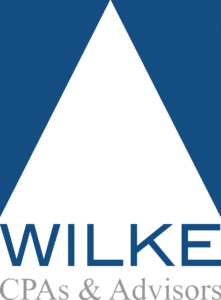May 5, 2020
Are PPP Forgivable Expenses Deductible?
Notice 2020-32 – Are expenses paid with PPP forgivable loans deductible?
For weeks,” since Paycheck Protection Program (PPP) loan funds were received, the $10 million question has been “Are the following expenses (payroll costs, rent, mortgage interest, and utilities) deductible if the funds from the PPP forgivable loans were used to pay for these expenses?”
Notice 2020-32
The notice officially provides guidance regarding the deductibility for Federal income tax purposes regarding the use of PPP funds to pay for certain expenses. The notice states that certain otherwise deductible expenses incurred in a taxpayer’s trade or business when the taxpayer receives a PPP (covered loan) related to Section 7(a) (36) of the Small Business Act (SBA), clarifies that no deduction is allowed for an expense that is otherwise deductible, if the payment of the expense results in forgiveness of a covered loan related to Section 1106(b) of the Coronavirus Aid, Relief, and Economic Security Act (CARES Act). However, the good news is that the income associated with the loan forgiveness is exempt from gross income, according to Section 1106(i) of the CARES Act.
In general, IRC Section 162 provides for a deduction for all ordinary and necessary expenses paid or incurred during the taxable year in carrying on any trade or business. Covered rent obligations, covered utility payments, and payroll costs consisting of and benefits paid to employees comprise common trade or business expenses for which a deduction under IRC Section 162 is generally deductible. IRC Section 163(a) provides a deduction for certain interest paid or accrued during the taxable year on indebtedness, including interest paid or incurred on a mortgage obligation of a trade or business.
Deduction Rules
However, IRC Section 265(a) (1) provides that no deduction is allowed for any amount otherwise allowable as a deduction to a taxpayer that is allocable to one or more classes of exempt income other than interest excluded from income. The term “class of exempt income” means any class of income that is either excluded from gross income or exempt from the taxes.
IRC Section 265(a) (1) applies to otherwise deductible expenses incurred for the purpose to earn or produce tax-exempt income. It also applies where tax-exempt income earmarked for a specific purpose and deductions incurred in carrying out that purpose. It is proper to conclude that some or all of the deductions are allocable to the tax-exempt income. For example, in Rev. Rul. 74-140, the portion of a state income tax paid by a taxpayer that is allocable to the cost-of-living allowance, a class of income wholly exempt under section 912, and is nondeductible under section 265.
In Manocchio v. Commissioner, 78 T.C. 989 (1982), a taxpayer attended a flight-training course that maintained and improved skills required in the taxpayer’s trade or business. As a veteran, the taxpayer’s entitlement to an educational assistance allowance from the Veterans’ Administration (VA) equal to 90 percent of the costs incurred. Because the payments received are exempt from taxation, the taxpayer does not report them as income. However, the taxpayer deducted the entire cost of the flight training course to include the portion reimbursed by the VA. The court held that the reimbursed flight-training expenses were nondeductible under IRC Section 265(a) (1).
AICPA Stance
The AICPA strongly believes that the IRS’s interpretation denying deductions of expenses forgiven under the PPP program is contrary to Congress’s intent. Chris Hesse, CPA, chair of the AICPA Tax Executive Committee, said: “In effect, the IRS guidance means that the taxability provision [Section 1106(i)] has no meaning. Why waste the ink to say that for purposes of the Code, the loan forgiveness is not includible in income, if the government will just take away deductions in the same amount?”
In summary, the purpose of IRC Section 265 is to prevent a double tax benefit. Therefore, it is no surprise that Notice 2020-32 was issued to clarify the tax treatment of expenses paid with PPP forgiven loans. Regarding the AICPA position, if AICPA is successful in persuading a different outcome remains to be seen; therefore, best to follow Notice 2020-32 until any further guidance (if any) provides any corrective changes.
Your business may have experienced financial fluctuations in the last 12 months, and you aren’t sure whether your organization will qualify for the available relief. Now is the time to consider leaning on your accountant for cash flow guidance, tax deadlines, completing SBA and CWCA loan applications, Family First tax credit calculations, and interpreting the CARES Act. Our accountants are available, and we have the knowledge, skill, and information that you need right now to address your financial needs in a timely fashion adequately.
Maria is a partner at Wilke & Associates servicing closely-held businesses in manufacturing, real estate, transportation/logistics, and technology industries as well as high net worth individuals and executives in delivering effective tax strategies.
